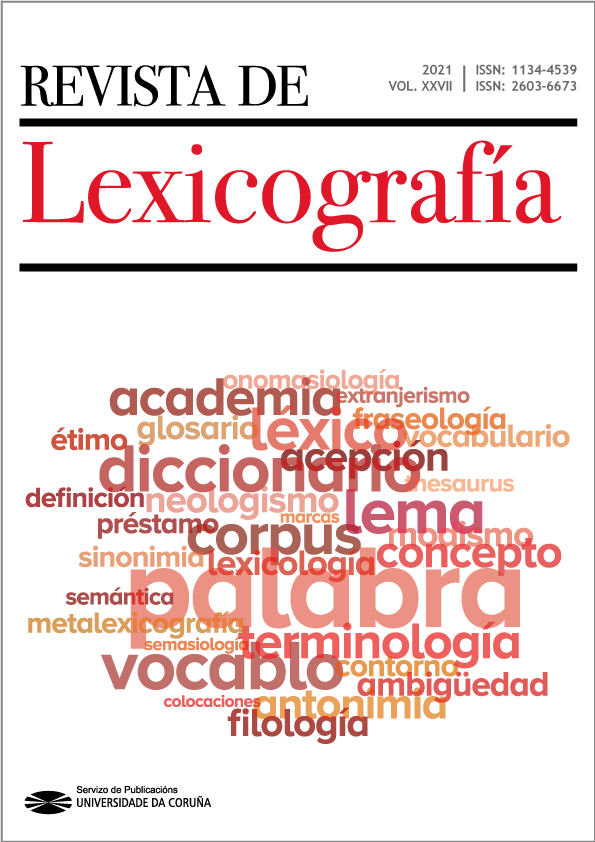Baroja, Besses, and Unconventional Language Lexicographical Study
Main Article Content
Abstract
Pío Baroja published his novel La busca in 1904, where he mirrors the daily, average living of the time, and uses the unconventional language of low-class people in their struggle for life. Luis Besses published his Diccionario de argot español in 1905, which was a lexicographical milestone in the study of peninsular Spanish slang and unconventional language. Baroja could not make use of Besses’s work and compiled slang from reality itself, doing linguistic field-work. Besses did not compile words from the La busca, and here both novel and dictionary are compared, which show the lexicographical coincidences in both works, emphasizing the scholarship of the two authors while at the same time 40 words are compared, and studied in time, out of the 60 considered.
Keywords:
Downloads
Article Details
References
Besses y Terreta, Luis (s/a): Novísimo diccionario fraseológico, francés-español, español-francés, formado de expresiones, modismos y locuciones familiares, Madrid, Mariano Núñez Samper.
Besses y Terreta, Luis (s/a [1903]): Diccionario de «argot» francés según los mejores autores antiguos y modernos y observaciones propias, Madrid, Hijos de M. G. Hernández.
Besses y Terreta, Luis (s/a [1905]): Diccionario de argot español o lenguaje jergal gitano, delincuente, profesional y popular, Barcelona, Sucesores de Manuel Soler.
Carbonell Basset, Delfín (1997): Diccionario castellano e inglés de argot y lenguaje informal, Barcelona, Ediciones del Serbal.
Carbonell Basset, Delfín (2000): Gran diccionario del argot: El sohez, Barcelona, Larousse.
Suances-Torres, Jaime (2000): Diccionario del verbo español, hispanoamericano y dialectal, Barcelona, Herder.


